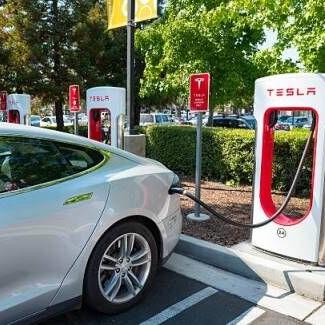Electric Vehicles, Once Viewed As The Future, Now Stuck In An Uncertain Present.

Consumer interest in electric vehicles has fallen to its lowest point since 2019, just as automakers begin pulling back on ambitious EV plans and shift focus toward hybrids, according to two new industry reports.
A national survey by AAA found only 16% of drivers say they’re likely to make their next vehicle an EV, down from previous years. Meanwhile, the percentage of consumers who are unlikely to buy an electric vehicle rose to 63%, the highest percentage recorded since 2022. Key concerns include high battery replacement costs (62%), expensive upfront pricing (59%), a lack of charging infrastructure (56%), and range anxiety (55%). While fears over battery lifespan persist, new research from the SLAC-Stanford Battery Center suggests real-world driving may be less damaging to EV batteries than previously believed.
EV prices remain a major hurdle. As of March, the average price for a new EV was $59,205 — far higher than the industry-wide average of $47,462, according to Cox Automotive. This gap, coupled with uncertainty around government incentives, has further cooled enthusiasm. AAA also reported that the number of people who believe most vehicles will be electric within a decade has dropped sharply, from 40% in 2022 to just 23% today.
At the same time, Bank of America’s Car Wars report reveals automakers are dramatically scaling back EV programs. Instead, they are expected to double down on hybrids and reduce the total number of new vehicle launches. Only 159 new models are projected for release through model year 2029 — a steep drop from more than 200 forecasted last year. Analyst John Murphy says the shift reflects ongoing EV adoption struggles, global tariffs, and regulatory challenges.
Speaking recently in suburban Detroit, Murphy said BofA has an optimistic forecast of 16.5 million vehicles for 2025, with a market peak of “around 18 million” in 2028. Murphy said there is pent-up demand in the market of “at least 10 million,” but a lot of that is for vehicles at the lower end of the market not currently met by the industry.
Murphy said BofA expects 29 models to be launched in 2025, “and that’s the lowest number we’ve had in decades,” he said, according to Automotive News. “This is really an indication that a lot of what’s been going on with EV investment and distractions otherwise that have really pulled product planning in many, many different directions. What you’re seeing is the push out and cancelation of numerous models, mostly in EVs.”
Despite setbacks, AAA found some enduring appeal: 77% of survey respondents said saving money on gas is a major motivator for considering EVs, followed by environmental concerns (59%).
The AAA survey, reported by Automotive News, was conducted March 6–10 and included 1,128 U.S. adults.

